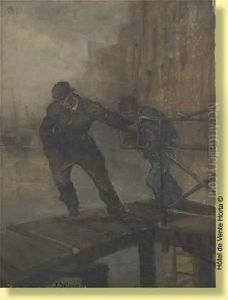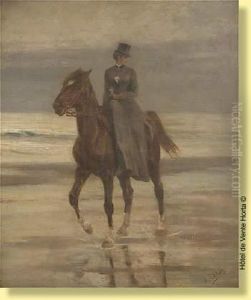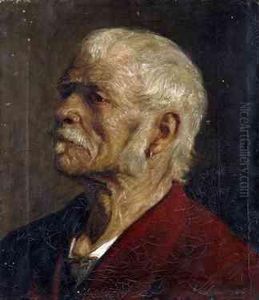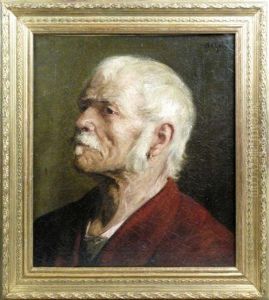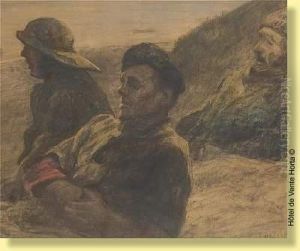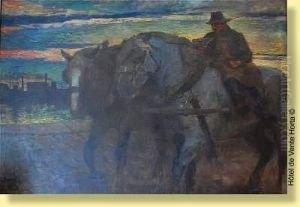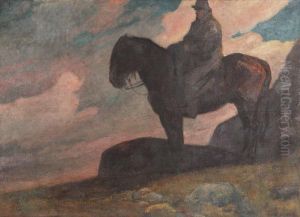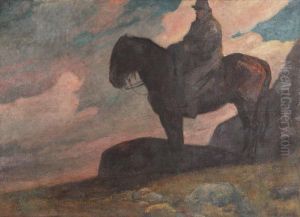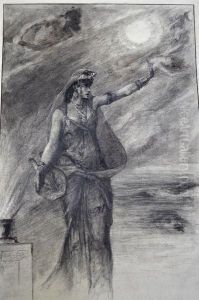Jean Joseph Delvin Paintings
Jean Joseph Delvin was a notable Belgian artist born on August 29, 1853, in Ghent, Belgium. His artistic journey began at an early age, influenced by the rich cultural heritage of his hometown. Delvin was primarily known for his mastery in genre painting, a style that focuses on depicting aspects of everyday life with an emphasis on the human figure. He also excelled in animal painting, showcasing a remarkable ability to capture the essence and character of his subjects.
Delvin embarked on his formal art education at the Royal Academy of Fine Arts in Ghent, where he was under the tutelage of Théodore-Joseph Canneel and Jean Delvin, among others. His talent was evident early on, and he quickly distinguished himself as a skilled painter. His dedication to his craft led him to further his studies abroad, which enriched his style and broadened his artistic perspectives.
Throughout his career, Delvin participated in numerous exhibitions, both in Belgium and internationally, earning acclaim and recognition for his work. He was particularly celebrated for his insightful depictions of rural and domestic life, capturing the nuances of light and shadow with a delicate touch. His paintings often portrayed scenes of daily life in the Belgian countryside, imbued with a sense of realism and empathy for his subjects.
In addition to his contributions as a painter, Delvin was also an influential teacher. He served as a professor at the Royal Academy of Fine Arts in Ghent, where he mentored a generation of artists, imparting his knowledge and passion for art. His teaching extended his impact beyond his own works, fostering a love for art among his students.
Jean Joseph Delvin's legacy is marked by his commitment to realism and his ability to convey the beauty and dignity of ordinary life. His artworks remain a testament to his skill and sensitivity as an artist. Delvin passed away on March 28, 1922, in Ghent, leaving behind a body of work that continues to be admired and studied for its artistic merit and historical significance.
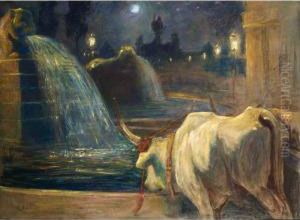
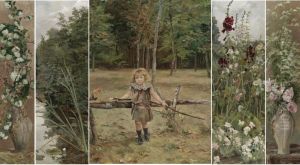
![[pecheur De Crevettes]](https://www.niceartgallery.com/imgs/532817/s/jean-joseph-delvin-pecheur-de-crevettes-2b85df9.jpg)
